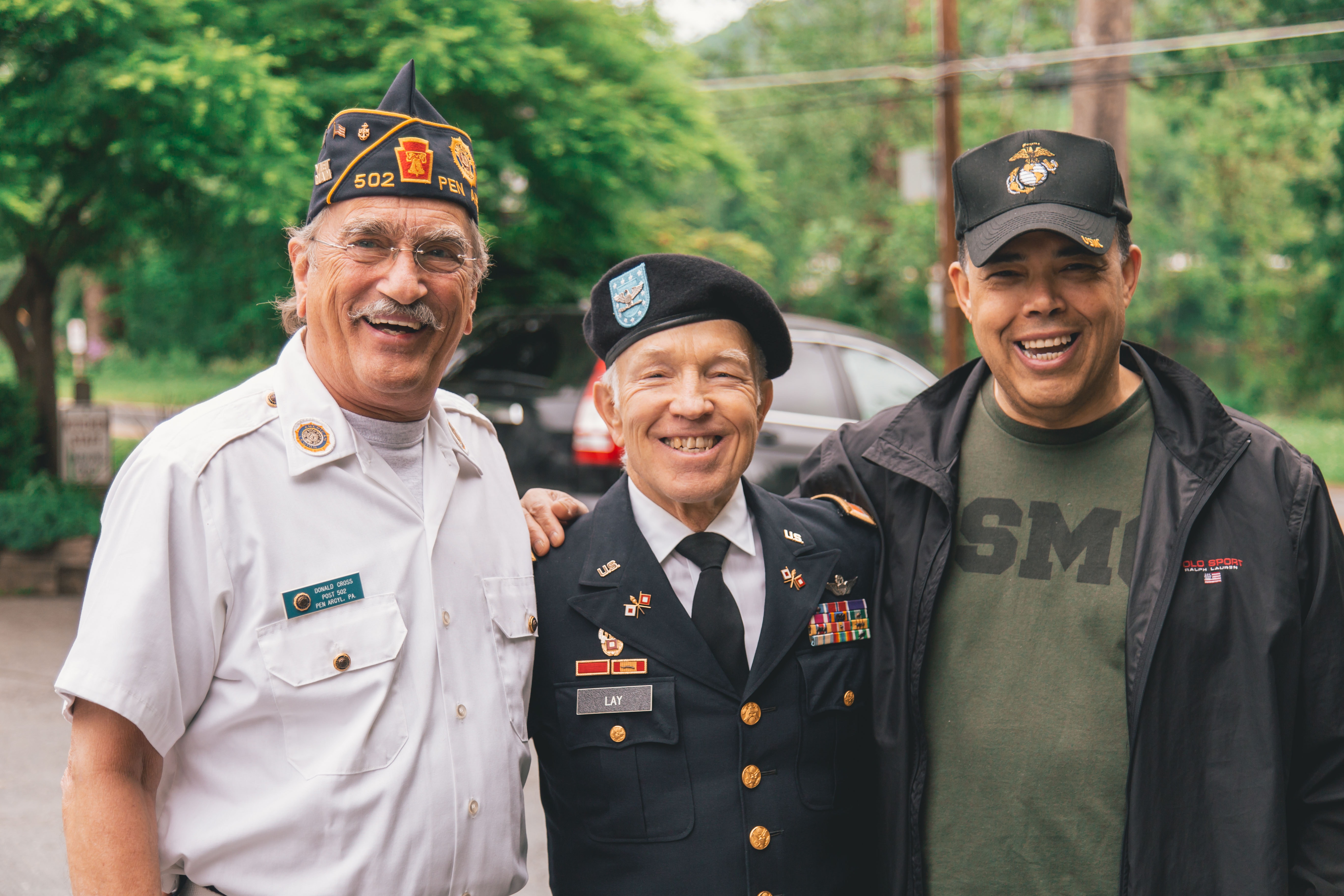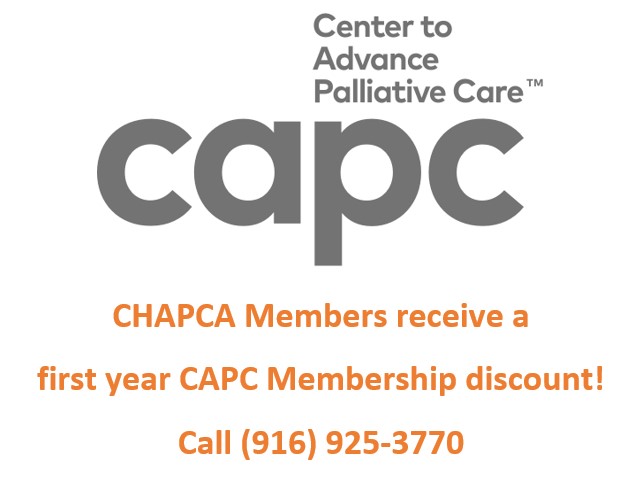Earn Your Stars!

We Honor Veterans provides educational tools and resources in advancing these goals:
- Promote Veteran-centric educational activities
- Increase organizational capacity to serve Veterans
- Support development of strategic partnerships
- Increase access and improve quality
We Honor Veterans also provides tiered recognition to organizations, known as Partners, that demonstrate a systematic commitment to improving care for veterans. There are five levels that partners can achieve in the program. Partner organizations assess their ability to serve veterans and, using resources provided as part of the program, integrate best practices for providing end-of-life care to veterans into their organization.
EARN YOUR STARS
As a We Honor Veterans Partner, there are five levels your organization can achieve. Each level guides you through specific activities using practical resources to progressively increase your ability to serve Veterans. Moving through the partner levels increases your organization’s knowledge and capacity to serve the Veterans in your community. It also demonstrates that your organization is making an active commitment to Veterans. When people in the community see that your organization is growing in the We Honor Veterans program, they’ll know that you can provide Veterans with compassionate care that is specific to their needs and goals. Participating in the initiative below will help you with increasing your current WHV levels. Below you will find an initial survey along with weekly surveys to keep track of the veterans receiving care. Upon completion of these surveys, CHAPCA will provide you a certificate of completion.

Resources Available to Veterans
The US Department of Veterans Affairs is a resource for both veterans and providers. Please visit www.ptsd.va.gov for more information and resources on how to:
- Understand PTSD by learning the symptoms, types of trauma, common reactions and related problems.
- Find the best treatment options: Learn and read about talk therapies and medications proven to help with PTSD.
- Get Help Now: Find out about care near you and self-help for managing symptoms.
- Information and tools to help you with assessment and treatment of PTSD.
If you need immediate help, call 1-800-273-8255 and press “1” if you are a Veteran, click here to chat with a counselor, or dial 911.
Trauma Informed Care Initiative
We Honor Veterans, in conjunction with the Department of Veterans Affairs (VA), has expanded their grant-funded work to include efforts aimed at providing telemental health services to Veterans, including a pilot triage mechanism to screen referrals to VA’s PTSD Consultation Program, and administering a competitive bid process in which thirteen state-wide partner organizations have been selected to receive funding for the Trauma-Informed Care for Veterans on Hospice Initiative. California Hospice and Palliative Care Association was selected as one of the 13 organizations to receive this grant funding.
This initiative has been mandated by Congress to support efforts to improve access to key resources and services available from the VA and to disseminate key training on trauma-informed care as provided through the We Honor Veterans program. As a participant of this program, CHAPCA will:
- Facilitate Veteran-specific training on PTSD, Moral Injury, and suicide prevention;
- Implement structured hospice protocols and guidelines specific to the provision of trauma-informed care;
- Pilot a triage mechanism within We Honor Veterans to screen referrals;
- Promote access to VA telemental health services;
- Share programmatic data.
This Initiative will focus on the three domains below:
PTSD (Post-Traumatic Stress Disorder) is a mental health condition that is triggered by a terrifying event - either experiencing it or witnessing it. Symptoms may include flashbacks, nightmares and severe anxiety, as well as uncontrollable thoughts about the event.
Moral Injury is the damage done to one's conscience or moral compass when that person perpetrates, witnesses or fails to prevent acts that transgress one's own moral beliefs, values, or ethical codes of conduct.
Suicideality is the risk of suicide, usually indicated by suicidal ideation or intent, specially as evident in the presence of a well-elaborated suicidal plan.
Free LIVE webinar: Trauma Informed Care Initiative Overview

In this webinar, we cover:
Resources for Providers
PTSD Consultation Program
The number of Veterans with PTSD varies by service era and symptoms do not always present themselves in a typical manner at the end of life. If you are providing care to a Veteran and need guidance on general issues, please visit the WHV Consultation Program to submit a request for a consultation. The PTSD Consultation Program for Providers is a free resource available. Simply fill out the form provided. Support from the VA’s PTSD Consultation Program is available to any provider, whether inside the VA or not. They cannot, however, provide direct guidance or consultation regarding or assume clinical responsibility for specific patients; any potential liability would be only in accordance with the Federal Tort Claims Act.
Overview: The PTSD Consultation Program offers consultation, continuing education, and other resources to healthcare providers who treat Veterans with PTSD in the community or in VA. Consultation is free and is consistent with evidence-based practices for PTSD and consensus statements such as the VA/DoD Clinical Practice Guideline for PTSD.
Services: Communicate directly via email or phone with expert clinicians from the National Center for PTSD about:
- Evidence-based treatment
- Medications
- Clinical management
- Informational resources about PTSD
- Assessment
- Education & training opportunities
- Collaborating with VA on Veterans' care
- Developing a PTSD treatment program
Consultants: expert clinicians who are here to answer your PTSD-related questions. The team includes psychologists, physicians, and pharmacists who have designed, implemented, and led PTSD treatment programs and consulted on thousands of PTSD cases and are part of the Executive Division of the National Center for PTSD.
Resources Available: As a Provider, you will find resources available to you in the following categories: Treating PTSD, Training in Evidence-Based Therapies, Treating Veterans and Referring Veterans.
Assessment
Overview: Proper assessment of trauma exposure and PTSD is best accomplished with validated measures. Below you will find information and online courses about assessment tools and best practices. You will be provided information on a variety of measures assessing trauma and PTSD. These measures are intended for use by qualified mental health professionals and researchers. The section is organized in the following way:
- Measures authored by National Center staff are available in PDF format to download on the specific measure pages or by request from the Center as noted.
- Measures developed outside of the National Center can be requested via contact information on the page for the specific measure.
- Also available is a comprehensive list of all measures offered.
Adult interviews: Adult PTSD interviews that include a description, sample items, different versions, references and how to obtain the measure provided
Adult Self Report: Adult self-report measures for PTSD. a brief description, sample items, versions, and references are provided
Child Measures: child measure for clinician administered PTSD scale for DSM-5.
Deployment Measures: Deployment Risk and Resilience Inventory-2 (DRRI-2) is a suite of 17 individual scales that assess key deployment-related risk and resilience factors with demonstrated implications for Veterans' post-deployment health.
DSM-5 Measures: National Center for PTSD measures that have been validated after revisions to include DSM-5 criteria for PTSD.
PTSD Screens: brief questionnaires that may identify people who are more likely to have PTSD.
Trauma Exposure Measures: These assessment instruments measure the types of trauma a person has been exposed to, or the degree of severity of the traumatic event someone experienced.
Assessment Request Form: Clinician-Administered PTSD Scale (CAPS; including DSM-IV, DSM-5, and Child/Adolescent versions) may be requested.
Trauma, PTSD and Treatment
- PTSD Essentials: Reviews the history of the proposed diagnosis of complex PTSD and treatment recommendations for those who report prolonged, repeated trauma histories
- Treatment Essentials: trauma-focused psychotherapy is the premier treatment for PTSD, but medication has an important role to play. Emerging and alternative treatments, as well as methods to better engage patients or enhance their treatment response are also described
- Types of Trauma: these articles describe common traumas, their prevalence and potential impact on survivors, while also addressing treatment implications
- Specific Populations: Provides an understanding of the experiences and needs of specific populations that can improve care
- Co-Occurring Conditions: These articles explain the connections among PTSD, trauma and co-occurring mental and physical health problems
- Trauma Informed Care: The resources here, including a number of tool kits, focus on trauma and PTSD in fields including criminal justice, education, and the clergy
Continuing Education
Providers are offered free in-depth Continuing Education resources for the Professional community concerned with trauma. In this section, you will find 41 educational courses from a number of topics and will earn your CE/CME credits as well.
Patient Education
Providers will find a wide variety of materials to help your patients understand what PTSD is and how it is treated, as well as tools for providers on how to engage patients in treatment and enhance the delivery of PTSD care.
Treatment Engagement
Find out more about the following products and how to use them with your patients. Print materials include:
Mobile and Online Apps, Videos, and Courses -
Find out about our self-help courses, apps, and videos to share with patients.
Print Materials: Handouts and Brochures
These educational flyers, handouts, brochures and other print materials can be used to help educate patients and family members about PTSD. They can be used by health providers to distribute to patients or by family members to help someone with PTSD.
Training Resources offered by We Honor Veterans Training Program "VHA TRAIN"
We Honor Veterans provides a training resource called VHA TRAIN which provides a comprehensive catalog of public health training opportunities. Everything on VHA TRAIN is free and open to non-VA staff. Community Care providers within the VA Network will need to complete required training courses.
*Please note: In order to receive continuing education credits, you will first need to make an account with VHA Train. By clicking on the VHA TRAIN link, you will be redirected to the WHV website in order to create an account. Please follow this guide for step by step instructions on how to set up your free training account.
CHAPCA recommends starting with the following webinars:
Community Hospices- Posttraumatic Stress Disorder in Vietnam Veterans Recording
Post-traumatic Stress Disorder (PTSD) affects many Veterans of the Vietnam War, and can complicate their quality of life and relationships with families and health care providers. This live knowledge-based presentation will define PTSD, it’s causes and symptoms, and how this may manifest at the end of life. A number of treatment options for PTSD specific to those under hospice are will be presented. The similarities and differences between PTSD and other conditions will be discussed.
Suicide Prevention for Vietnam Veterans
This live knowledge-based presentation will help to prepare hospice providers and other healthcare teams to identify signs of suicidal thoughts and behavior among Veterans. Appropriate suicide assessment tools for identifying high risk Veterans will be described. Options for intervention and care will be discussed, both within the VA and externally.
Community Hospices- Moral Injury in Vietnam Veterans
This webinar will define the concept of Moral Injury (MI) to healthcare teams and how it affects some Veterans of the Vietnam War. How to identify symptoms of Moral Injury, especially in the last weeks to months of life, will be described. Treatment options, particularly those that are viable in the home setting and utilized by hospice and other healthcare professionals, will be discussed. The similarities and differences between Post Traumatic Stress Disorder (PTSD) and Moral Injury will also be presented. This can also apply to other Veterans.
Data Assessment
As a participant of the Trauma Informed Care Initiative, CHAPCA is gathering data in order to provide the tools to help local VA facilities and community-based hospice providers collaborate and improve upon the person-centered, interdisciplinary care Veterans and their families receive at the end of life.
Please take a moment to complete the forms below for your Hospice agency. This data will be collected and submitted for Congressional reporting on August 31st. However, we encourage Hospice agencies to continue to use this form and data will be submitted to the VA in an effort to provide useful statewide reporting. Participating in the initiative below will help you with increasing your current WHV levels. Upon completion of these surveys, CHAPCA will provide you a certificate of completion. Please note: The form will require you to login to the CHAPCA website. If you are a current member, please log in using your member username and password. If you are not a member of CHAPCA, please create an account.
***If you are currently receiving emails from CHAPCA, you already have a username and password established. Please do not create a duplicate profile. Contact CHAPCA at [email protected] or (916) 925-3770 and we will provide your login information.
How Can You Help?
STEP 1. INITIAL SURVEY
The survey below is the first initial survey that we are asking ALL hospice agencies to fill out. This data will be collected and submitted as helpful research for CA.
Trauma Informed Care Initiative
STEP 2. WEEKLY SURVEY
Please come back and fill out the forms below weekly so that we can keep an accurate count of veterans that you serve:
Trauma Informed Care Initiative - Agencies Adopting Protocols
Trauma Informed Care Initiative - Number of Veterans Screened
Trauma Informed Care Initiative - Positive Domains
The Department of Veteran Affairs Support
The US Department of Veteran Affairs and We Honor Veterans offer many different tools to support veterans on hospice. We feel that the following will be helpful for your agency.
Care Planning Guide for Veterans This guide can be used as a model for your agency and will cover how to access and plan for post traumatic stress, planing and assessing pain and other symptoms and how to identify moral injury and military rituals.
VA PTSD Consultation Program The VA offers free consultation about PTSD related issues for providers that treat veterans with PTSD. They also offer monthly live lectures.
WHV PTSD Consultation Program for Providers We Honor Veterans also offers free consultation and support to providers that treat veterans. They offer email, live or chat options for communication
Helpful Links
Below are resources for providers caring for Veterans that have been impacted by trauma:
|




